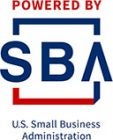For many small businesses, getting ready for the tax filing season can feel like a scramble to find the right documents, fill out the correct forms, and follow the proper steps. There are ways to make the experience less overwhelming and run more smoothly.
Small business tax preparation starts with ensuring your books are in order, so this month we checked in with Glen Zibolis, a Rhode Island-based Advanced Certified QuickBooks ProAdvisor and part-time business advisor with the RI Small Business Development Center. He suggested a few tips to simplify the preparation process and help you get tax season ready.
1. Pick the right accounting software
If you are still using a spreadsheet to manage your small business taxes, the chances for human error are much higher, which can impact the accuracy of your tax returns. Luckily, numerous accounting software options are available to choose from. Picking the best software will ultimately depend on your specific business reporting needs. QuickBooks is typically the most accessible accounting software recommendation for small business tax preparation. No matter the software you choose though, it is imperative to have a basic understanding of how to access and retrieve financial reports.
2. Separate business expenses from personal ones
One of the most common ways to get into tax trouble is having personal expenses mingle with your business expenses. The first thing you should do when starting a small business is establish a separate business bank account. Having a different account for business expenses will ensure you have accurate records and can keep personal transactions more private.
3. Regularly reconcile bank and credit card statements
An essential step for small business tax preparation is ensuring all bank and credit accounts are reconciled monthly. Reconciling your bank statements means you’re comparing them with your bookkeeping records and confirming there are no discrepancies. Be sure to take this step for any business credit cards or payment accounts (like Venmo or PayPal), too.
Bonus tips
- Free up time and gain expertise with the help of a professional accountant.
- Retain copies of all checks deposited into bank accounts.
- Maintain a business trip and mileage log if using a personal vehicle for business.
- Correctly classify your business to avoid overpaying or underpaying taxes. Consult with a tax professional to confirm your correct classification.
Whether or not it’s your first tax season, you can use these small business tax preparation tips to get a head start on filing and getting organized for the next tax year. As always, if you need guidance on where to get started or need more resources, we’re here to point you in the right direction.
The Rhode Island Small Business Development Center at the University of Rhode Island employs a dedicated, experienced, and knowledgeable staff of business counselors and administrators who can assist you in growing your business. Register now for free, confidential business advice from our advisors here, call (401) 874-7232 to make a counseling appointment, or attend one of our free webinars.




